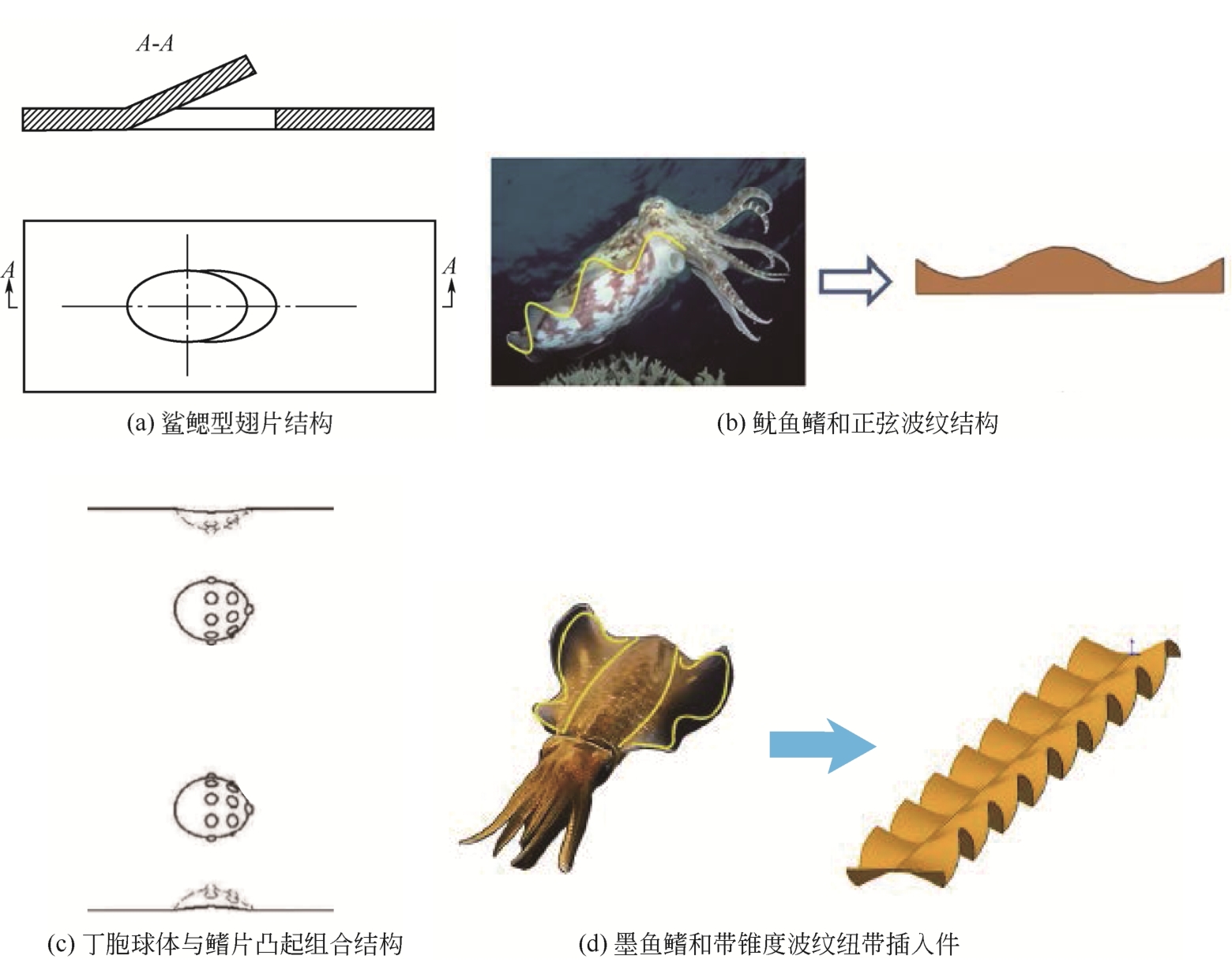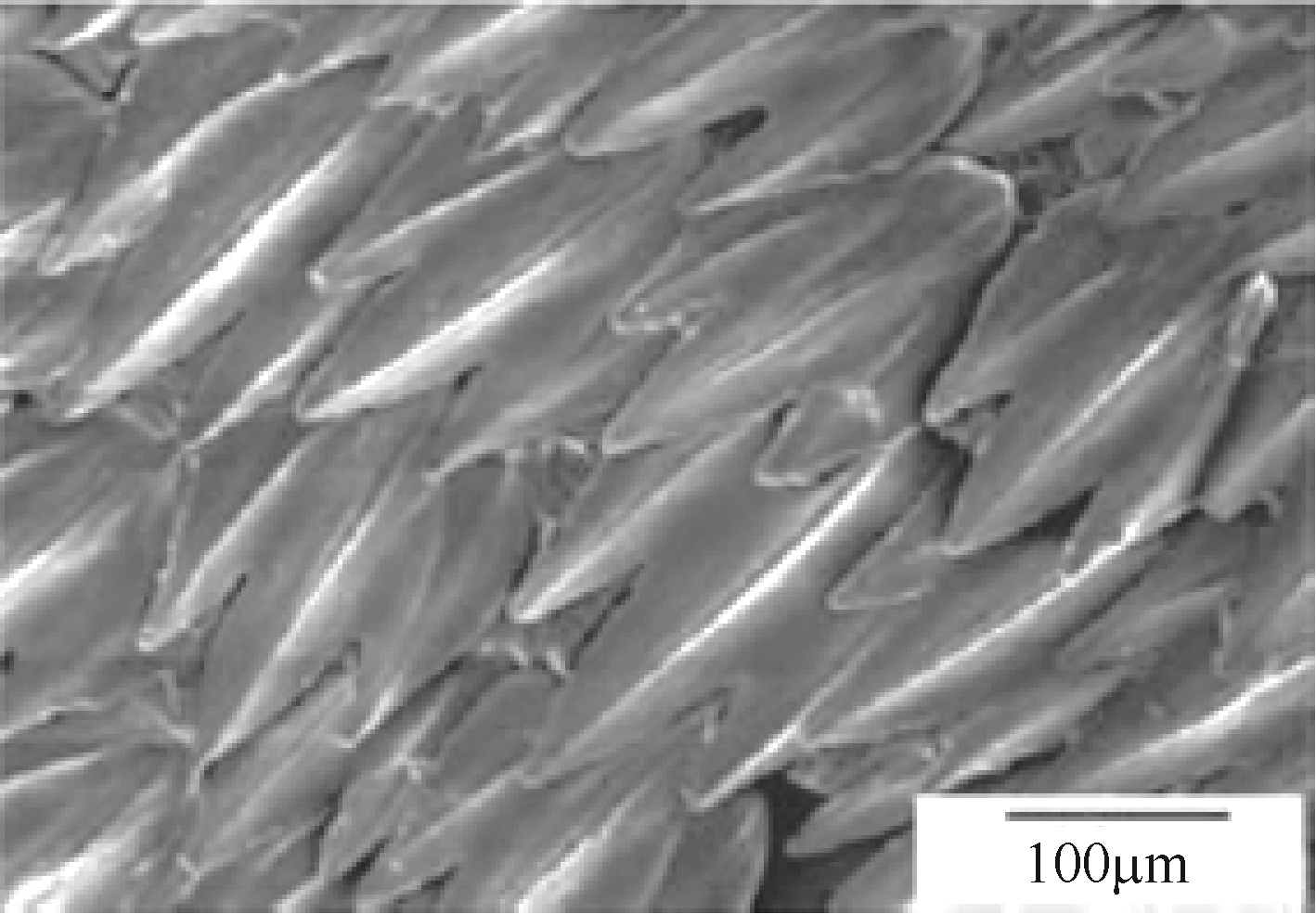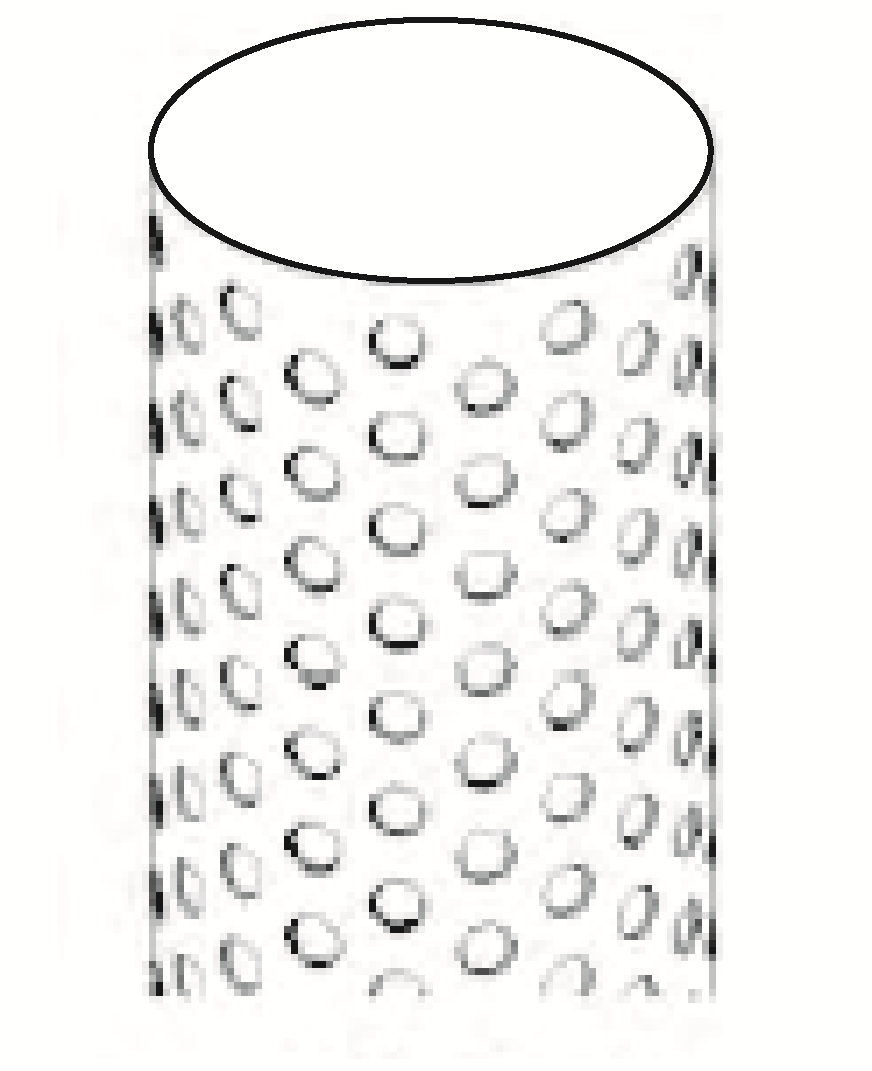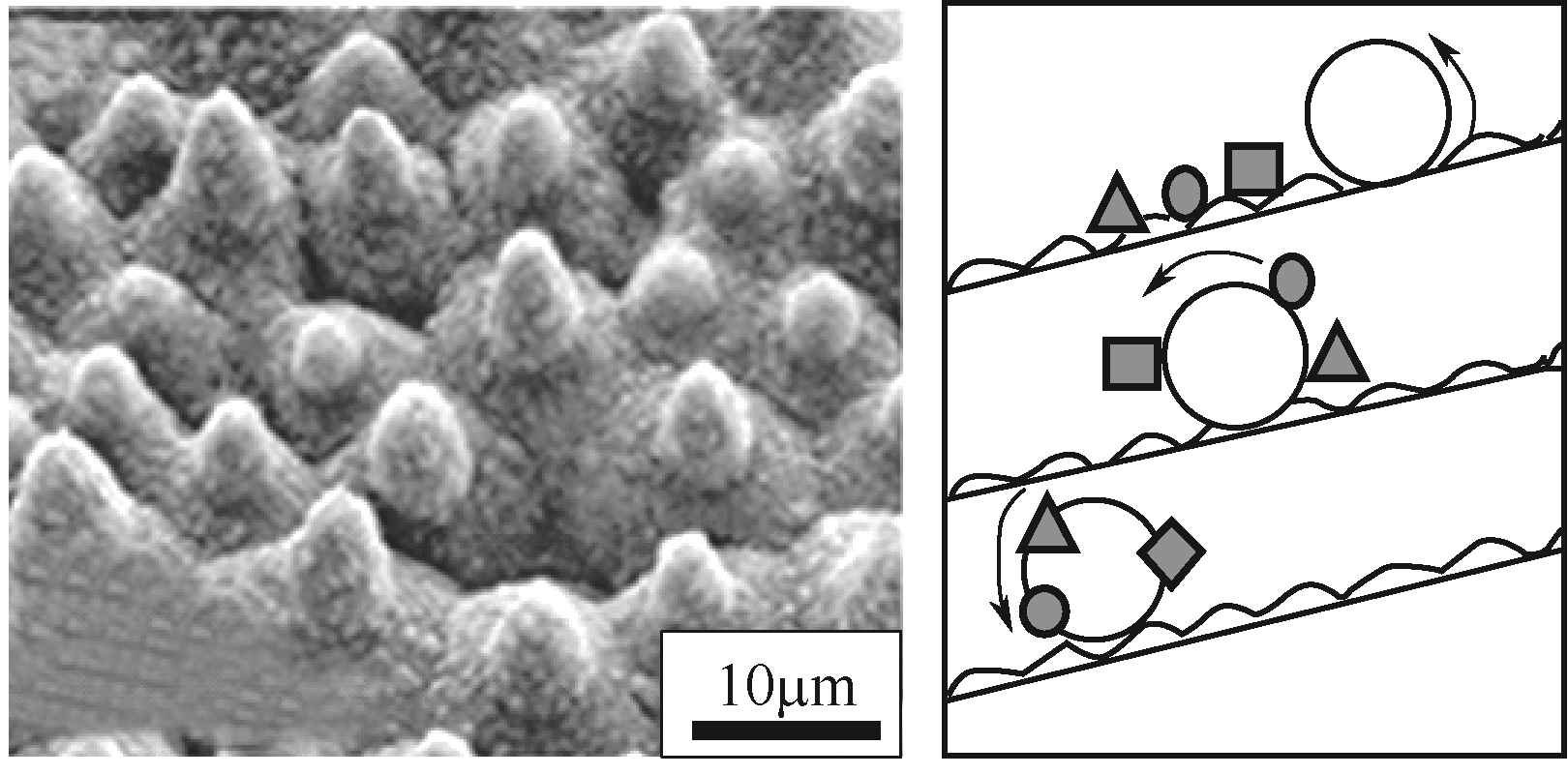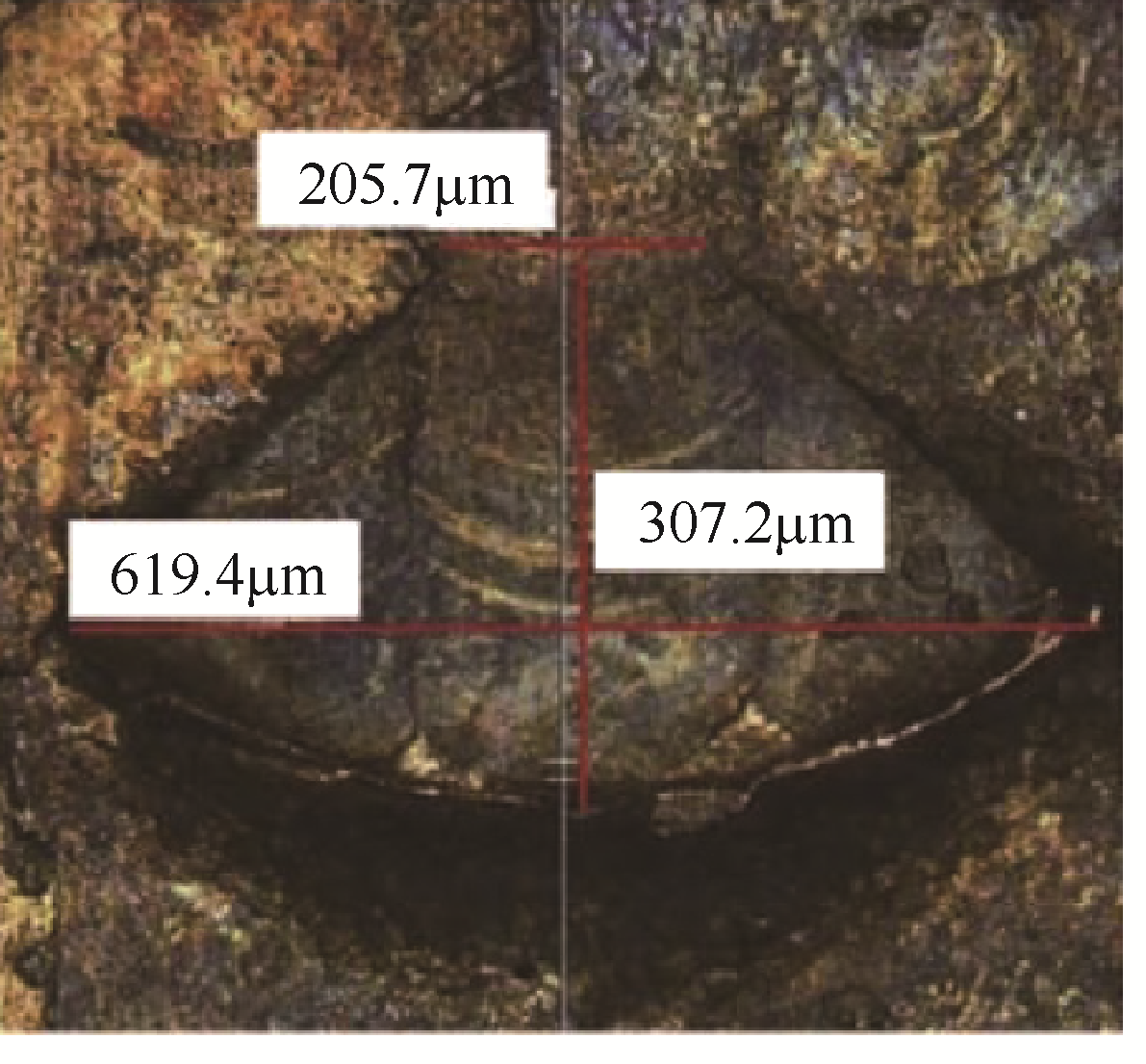Chemical Industry and Engineering Progress ›› 2021, Vol. 40 ›› Issue (5): 2375-2388.DOI: 10.16085/j.issn.1000-6613.2020-1140
• Chemical processes and equipment • Previous Articles Next Articles
Research progress on heat transfer enhancement and surface drag reduction techniques based on bionics
LI Juan( ), ZHU Zhangyu, ZHAI Hao, WANG Jialuo
), ZHU Zhangyu, ZHAI Hao, WANG Jialuo
- College of Mechanical and Electronic Engineering, Nanjing Forestry University, Nanjing 210037, Jiangsu, China
-
Received:2020-06-22Online:2021-05-24Published:2021-05-06 -
Contact:LI Juan
基于仿生学的强化传热与减阻技术研究进展
- 南京林业大学机械电子工程学院,江苏 南京 210037
-
通讯作者:李娟 -
作者简介:李娟(1987—),女,副教授,研究方向为强化传热技术与装备。E-mail:lijuan87@njfu.edu.cn 。 -
基金资助:国家自然科学基金(51506098);南京林业大学科研启动项目(GXL006);江苏省政府留学奖学金项目
CLC Number:
Cite this article
LI Juan, ZHU Zhangyu, ZHAI Hao, WANG Jialuo. Research progress on heat transfer enhancement and surface drag reduction techniques based on bionics[J]. Chemical Industry and Engineering Progress, 2021, 40(5): 2375-2388.
李娟, 朱章钰, 翟昊, 王嘉洛. 基于仿生学的强化传热与减阻技术研究进展[J]. 化工进展, 2021, 40(5): 2375-2388.
share this article
Add to citation manager EndNote|Ris|BibTeX
URL: https://hgjz.cip.com.cn/EN/10.16085/j.issn.1000-6613.2020-1140
| 仿生对象 | 仿生结构及参数 | 研究方法 | 工质、工况 | 最佳效果 | 参考文献 |
|---|---|---|---|---|---|
| 鲨鱼鳃 | 鲨鳃型翅片 间距1mm 厚度0.2mm 开口大小1~6mm 开口角度5°~30° | 数值模拟 | 去离子水 工质流速 u=1m·s-1 工质进口温度Tin=300K | 传热强化 阻耗增加 | [ |
| 鱿鱼鳍 | 正弦波纹结构 振幅2mm 波长6.75~13.05mm | 实验 | 去离子水 Fe3O4-CNTs纳米流体 Re=600-1300 | 传热强化13.27% 阻耗增加7.56% | [ |
| 竹节 | 竹节凸起结构 间距15~20mm 边长5~10mm | 数值模拟 | 去离子水 u=1m·s-1 Tin=300K 恒壁温 Twall=400K | 传热强化37% 阻耗增加26% | [ |
| 座头鲸鳍片 | 丁胞球体与鳍片凸起组合结构 球体直径4mm 凸起直径0.6mm 相对深度0.0316~0.1053 排列密度0.0402~0.0804 | 数值模拟 | 去离子水 Re=104-4.5×104 Twall=350K | 传热强化83% 阻耗增加60% | [ |
| 墨鱼鳍 | 带锥度波纹纽带插入件 周期40~60mm 振幅1.8~8.1mm | 实验 数值模拟 | 去离子水 Re=600~1800 | 传热强化580% 阻耗增加2300% | [ |
| 植物叶片 | 分形结构 一级槽道长度16mm 宽度2mm 深度0.3mm 相邻槽道长度比0.7 宽度比0.7 分形角度50°~90° | 实验 | 去离子水与水蒸气 充液率25%~45% Qhot=20~80W | 传热强化40.29% | [ |
| 天鹅绒竹芋 | 锥形毛细芯结构 高度2mm 底部直径1.5mm | 实验 | 去离子水与水蒸气 充液率20% 加热功率 Qhot=10~160W | 传热强化65.7% | [ |
| 仙人掌 | 超亲水乳突与超疏水表面组合结构 锥形乳突底部直径3mm 高度5mm 间距8mm | 实验 | 去离子水与水蒸气 充液率10% 过冷度0~14K | 传热强化380% | [ |
| 蝉翼 | 纳米针构型 间距84~114nm 直径7~13nm 高度0.8~2.9μm | 实验 | 去离子水与水蒸气 饱和蒸汽压7.38kPa | 传热强化320% | [ |
| 纳米布沙漠甲虫 | 微米柱阵列结构 直径6μm 高度7μm 间距12~24μm | 实验 | 去离子水与水蒸气 饱和蒸汽压1.93~3.17kPa | 传热强化153% | [ |
| 仿生对象 | 仿生结构及参数 | 研究方法 | 工质、工况 | 最佳效果 | 参考文献 |
|---|---|---|---|---|---|
| 鲨鱼鳃 | 鲨鳃型翅片 间距1mm 厚度0.2mm 开口大小1~6mm 开口角度5°~30° | 数值模拟 | 去离子水 工质流速 u=1m·s-1 工质进口温度Tin=300K | 传热强化 阻耗增加 | [ |
| 鱿鱼鳍 | 正弦波纹结构 振幅2mm 波长6.75~13.05mm | 实验 | 去离子水 Fe3O4-CNTs纳米流体 Re=600-1300 | 传热强化13.27% 阻耗增加7.56% | [ |
| 竹节 | 竹节凸起结构 间距15~20mm 边长5~10mm | 数值模拟 | 去离子水 u=1m·s-1 Tin=300K 恒壁温 Twall=400K | 传热强化37% 阻耗增加26% | [ |
| 座头鲸鳍片 | 丁胞球体与鳍片凸起组合结构 球体直径4mm 凸起直径0.6mm 相对深度0.0316~0.1053 排列密度0.0402~0.0804 | 数值模拟 | 去离子水 Re=104-4.5×104 Twall=350K | 传热强化83% 阻耗增加60% | [ |
| 墨鱼鳍 | 带锥度波纹纽带插入件 周期40~60mm 振幅1.8~8.1mm | 实验 数值模拟 | 去离子水 Re=600~1800 | 传热强化580% 阻耗增加2300% | [ |
| 植物叶片 | 分形结构 一级槽道长度16mm 宽度2mm 深度0.3mm 相邻槽道长度比0.7 宽度比0.7 分形角度50°~90° | 实验 | 去离子水与水蒸气 充液率25%~45% Qhot=20~80W | 传热强化40.29% | [ |
| 天鹅绒竹芋 | 锥形毛细芯结构 高度2mm 底部直径1.5mm | 实验 | 去离子水与水蒸气 充液率20% 加热功率 Qhot=10~160W | 传热强化65.7% | [ |
| 仙人掌 | 超亲水乳突与超疏水表面组合结构 锥形乳突底部直径3mm 高度5mm 间距8mm | 实验 | 去离子水与水蒸气 充液率10% 过冷度0~14K | 传热强化380% | [ |
| 蝉翼 | 纳米针构型 间距84~114nm 直径7~13nm 高度0.8~2.9μm | 实验 | 去离子水与水蒸气 饱和蒸汽压7.38kPa | 传热强化320% | [ |
| 纳米布沙漠甲虫 | 微米柱阵列结构 直径6μm 高度7μm 间距12~24μm | 实验 | 去离子水与水蒸气 饱和蒸汽压1.93~3.17kPa | 传热强化153% | [ |
| 仿生对象 | 仿生结构及参数 | 研究方法 | 工质、工况 | 最佳减阻率/% | 参考文献 |
|---|---|---|---|---|---|
| 鲨鱼 | V形、锯齿形、矩形、半圆形沟槽 高度30μm 宽度30μm | 数值模拟 | 去离子水 u=38~55m·s-1 | 33 | [ |
| 鲨鱼 | 矩形沟槽 间距50~250μm 高度间距之比0.49 厚度间距之比0.12 | 实验 | 空气 V=0.83~8.3dm3·s-1 | 6 | [ |
| 鲨鱼 | V形沟槽 深度0.1mm 宽度0.1mm 圆角半径0~0.05mm | 数值模拟 | 牛顿流体 Re=5.22×105~7.43×106 | 6.6 | [ |
| 鲨鱼 | 简化盾鳞沟槽 矩形微凸体高度40μm 宽度20μm 间距60μm 长度100~500μm | 数值模拟 | 海水 u=3~9m·s-1 | 17.86 | [ |
| 蜣螂 | 圆形凹坑 | 数值模拟 | 去离子水 Re=4×104 | 18 | [ |
| 蜣螂 | 圆形凹坑 直径0.4mm 深度0.2mm 间距5mm | 数值模拟 | 空气 u=6~15m·s-1 | 18.84 | [ |
| 黄缘真龙虱 | 圆形凸包 高度6mm 直径8mm 间距35mm | 数值模拟 | 水田泥浆 u=0.5~4m·s-1 | 9.33 | [ |
| 黄缘真龙虱 | 圆形凹坑、凸包 直径8~22mm 深度5~19mm | 实验 数值模拟 | 泥浆土壤 u=3m·s-1 | 12.7 | [ |
| 荷叶 | 超疏水表面 | 实验 | 甘油自来水溶液 Re=1177~2137 | 14 | [ |
| 荷叶 | 超疏水表面 | 实验 | 去离子水 Re=4.8×103~104 | 11 | [ |
| 荷叶 | 超疏水表面 | 实验 | 去离子水 Re=700~4700 | 38.6 | [ |
| 仿生对象 | 仿生结构及参数 | 研究方法 | 工质、工况 | 最佳减阻率/% | 参考文献 |
|---|---|---|---|---|---|
| 鲨鱼 | V形、锯齿形、矩形、半圆形沟槽 高度30μm 宽度30μm | 数值模拟 | 去离子水 u=38~55m·s-1 | 33 | [ |
| 鲨鱼 | 矩形沟槽 间距50~250μm 高度间距之比0.49 厚度间距之比0.12 | 实验 | 空气 V=0.83~8.3dm3·s-1 | 6 | [ |
| 鲨鱼 | V形沟槽 深度0.1mm 宽度0.1mm 圆角半径0~0.05mm | 数值模拟 | 牛顿流体 Re=5.22×105~7.43×106 | 6.6 | [ |
| 鲨鱼 | 简化盾鳞沟槽 矩形微凸体高度40μm 宽度20μm 间距60μm 长度100~500μm | 数值模拟 | 海水 u=3~9m·s-1 | 17.86 | [ |
| 蜣螂 | 圆形凹坑 | 数值模拟 | 去离子水 Re=4×104 | 18 | [ |
| 蜣螂 | 圆形凹坑 直径0.4mm 深度0.2mm 间距5mm | 数值模拟 | 空气 u=6~15m·s-1 | 18.84 | [ |
| 黄缘真龙虱 | 圆形凸包 高度6mm 直径8mm 间距35mm | 数值模拟 | 水田泥浆 u=0.5~4m·s-1 | 9.33 | [ |
| 黄缘真龙虱 | 圆形凹坑、凸包 直径8~22mm 深度5~19mm | 实验 数值模拟 | 泥浆土壤 u=3m·s-1 | 12.7 | [ |
| 荷叶 | 超疏水表面 | 实验 | 甘油自来水溶液 Re=1177~2137 | 14 | [ |
| 荷叶 | 超疏水表面 | 实验 | 去离子水 Re=4.8×103~104 | 11 | [ |
| 荷叶 | 超疏水表面 | 实验 | 去离子水 Re=700~4700 | 38.6 | [ |
| 仿生对象 | 仿生结构及参数 | 水力直径Dh | 研究方法 | 工质、工况 | 最佳效果 | 参考文献 |
|---|---|---|---|---|---|---|
| 鲨鱼皮 | 带劈缝球凸结构 球凸直径100μm 高度20μm 劈缝宽度3~15μm 相对位置0.14~0.33 | 80μm | 数值模拟 | 去离子水 Re=50~350 恒热流密度 q=5×105W·m-2 | 传热强化8.8% 阻耗减少3.7% | [ |
| 鱼鳞 | 环形鱼鳞结构 高度0.03~0.21mm 间距0.3~3mm | 600μm | 实验 数值模拟 | 去离子水 Re=1.3×103~4.6×103 q=5.3×105W·m-2 | 传热强化111.2% 阻耗减少14.3% | [ |
| 鱼鳞 | 扇形鱼鳞结构 倾斜高度290.3μm 垂直高度307.2μm 前端宽度205.7μm 水平间隔205.7μm 倾角高度0.5~5μm | 193.5~375μm | 实验 数值模拟 | 去离子水 Re=205~1050 q=5×105W·m-2 | 传热强化14% 阻耗减少5% | [ |
| 叶脉 | 分形结构 侧脉长度6.55mm 宽度0.4mm 高度1.5mm | 0.63mm | 实验 数值模拟 | HFE7200 工质体积流量 V=0.2~0.5L·min-1 Tin=313.15~3143.15K q=2.5×105~106W·m-2 | 传热强化19.5% 阻耗减少2.3% | [ |
| 叶脉 | 扩缩结构与分形结构耦合 0级通道长度10mm 宽度0.6mm 高度0.5mm 相邻通道长度比0.7 宽度差0.1mm 分形角度60° | 0.545mm | 数值模拟 | 去离子水 Re=250~1000 Tin=298.15K q=105W·m-2 | 传热强化17% 阻耗减少45% | [ |
| 叶脉 | 多层分形结构 0级通道长度8.01mm 宽度0.333mm 高度0.25mm 相邻通道长度比0.7071 水力直径比0.7937 分形角度32°~44° | 0.286mm | 实验 数值模拟 | 去离子水 V=200~600mL·min-1 Tin=293K q=4×105W·m-2 | 传热强化30% 阻耗减少60% | [ |
| 荷叶 | 亲水表面、疏水表面、超疏水表面组合壁面 壁面接触角40°、114.6°、142.7°、155.4° | 0.834mm | 实验 | 去离子水 u=0.043m·s-1 | 阻耗减少18.2% | [ |
| 荷叶 | 超亲水表面、普通亲水表面、超疏水表面 壁面接触角0°、67°、156° | 1.33mm | 实验 | R141b 工质质量流速G=165.17~550.34kg·m-2·s-1 q=11440~18150W·m-2 | 阻耗减少21.9% | [ |
| 荷叶 | 亲水表面、疏水表面、亲疏水匹配表面 壁面接触角22.6°、135° 椭圆亲水点长轴77μm 短轴44μm | 1.5mm | 实验 | 去离子水和水蒸气 干度0.3~1 G=10~60kg·m-2·s-1 | 传热强化454.6% | [ |
| 仿生对象 | 仿生结构及参数 | 水力直径Dh | 研究方法 | 工质、工况 | 最佳效果 | 参考文献 |
|---|---|---|---|---|---|---|
| 鲨鱼皮 | 带劈缝球凸结构 球凸直径100μm 高度20μm 劈缝宽度3~15μm 相对位置0.14~0.33 | 80μm | 数值模拟 | 去离子水 Re=50~350 恒热流密度 q=5×105W·m-2 | 传热强化8.8% 阻耗减少3.7% | [ |
| 鱼鳞 | 环形鱼鳞结构 高度0.03~0.21mm 间距0.3~3mm | 600μm | 实验 数值模拟 | 去离子水 Re=1.3×103~4.6×103 q=5.3×105W·m-2 | 传热强化111.2% 阻耗减少14.3% | [ |
| 鱼鳞 | 扇形鱼鳞结构 倾斜高度290.3μm 垂直高度307.2μm 前端宽度205.7μm 水平间隔205.7μm 倾角高度0.5~5μm | 193.5~375μm | 实验 数值模拟 | 去离子水 Re=205~1050 q=5×105W·m-2 | 传热强化14% 阻耗减少5% | [ |
| 叶脉 | 分形结构 侧脉长度6.55mm 宽度0.4mm 高度1.5mm | 0.63mm | 实验 数值模拟 | HFE7200 工质体积流量 V=0.2~0.5L·min-1 Tin=313.15~3143.15K q=2.5×105~106W·m-2 | 传热强化19.5% 阻耗减少2.3% | [ |
| 叶脉 | 扩缩结构与分形结构耦合 0级通道长度10mm 宽度0.6mm 高度0.5mm 相邻通道长度比0.7 宽度差0.1mm 分形角度60° | 0.545mm | 数值模拟 | 去离子水 Re=250~1000 Tin=298.15K q=105W·m-2 | 传热强化17% 阻耗减少45% | [ |
| 叶脉 | 多层分形结构 0级通道长度8.01mm 宽度0.333mm 高度0.25mm 相邻通道长度比0.7071 水力直径比0.7937 分形角度32°~44° | 0.286mm | 实验 数值模拟 | 去离子水 V=200~600mL·min-1 Tin=293K q=4×105W·m-2 | 传热强化30% 阻耗减少60% | [ |
| 荷叶 | 亲水表面、疏水表面、超疏水表面组合壁面 壁面接触角40°、114.6°、142.7°、155.4° | 0.834mm | 实验 | 去离子水 u=0.043m·s-1 | 阻耗减少18.2% | [ |
| 荷叶 | 超亲水表面、普通亲水表面、超疏水表面 壁面接触角0°、67°、156° | 1.33mm | 实验 | R141b 工质质量流速G=165.17~550.34kg·m-2·s-1 q=11440~18150W·m-2 | 阻耗减少21.9% | [ |
| 荷叶 | 亲水表面、疏水表面、亲疏水匹配表面 壁面接触角22.6°、135° 椭圆亲水点长轴77μm 短轴44μm | 1.5mm | 实验 | 去离子水和水蒸气 干度0.3~1 G=10~60kg·m-2·s-1 | 传热强化454.6% | [ |
| 1 | 孙久荣, 戴振东. 仿生学的现状和未来[J]. 生物物理学报, 2007, 23(2): 109-115. |
| SUN J R, DAI Z D. Bionics today and tomorrow[J]. Acta Biophysica Sinica, 2007, 23(2): 109-115. | |
| 2 | 李言俊, 高阳. 仿生技术及其应用[J]. 安阳工学院学报, 2005, 4(1): 28-31. |
| LI Y J, GAO Y. On bionic technology and its application[J]. Journal of Anyang University, 2005, 4(1): 28-31. | |
| 3 | 林文珠, 曹嘉豪, 方晓明, 等. 管壳式换热器强化传热研究进展[J]. 化工进展, 2018, 37(4): 1276-1286. |
| LIN W Z, CAO J H, FANG X M, et al. Research progress of heat transfer enhancement of shell-and-tube heat exchanger[J]. Chemical Industry and Engineering Progress, 2018, 37(4): 1276-1286. | |
| 4 | 马付良, 曾志翔, 高义民, 等. 仿生表面减阻的研究现状与进展[J]. 中国表面工程, 2016, 29(1): 7-15. |
| MA F L, ZENG Z X, GAO Y M, et al. Research status and progress of bionic surface drag reduction[J]. China Surface Engineering, 2016, 29(1): 7-15. | |
| 5 | 李东志, 马晨波, 孙见君, 等. 考虑空化的倾斜织构表面摩擦学性能CFD分析[J]. 润滑与密封, 2018, 43(8): 76-81. |
| LI D Z, MA C B, SUN J J, et al. CFD analysis of tribological properties of inclined texture surface with consideration of cavitation[J]. Lubrication Engineering, 2018, 43(8): 76-81. | |
| 6 | 刘景成, 张树有, 周智勇. 一种新型仿生翅片及其对流体流动与传热影响[J]. 机械工程学报, 2015, 51(12): 161-169. |
| LIU J C, ZHANG S Y, ZHOU Z Y. Influence on fluid flow and heat transfer of a bionic fin in plate-fin heat exchanger[J]. Journal of Mechanical Engineering, 2015, 51(12): 161-169. | |
| 7 | QI C, WANG Y X, TANG J H. Effect of squid fin bionic surface and magnetic nanofluids on CPU cooling performance under magnetic field[J]. Asia-Pacific Journal of Chemical Engineering, 2020, 15(4): e2482. |
| 8 | 靳遵龙, 董其伍, 刘敏珊, 等. 竹节强化传热管综合性能数值研究[J]. 石油机械, 2009, 37(8): 42-44. |
| JIN Z L, DONG Q W, LIU M S, et al. Numerical study on the comprehensive performance of bamboo reinforced heat transfer tube[J]. China Petroleum Machinery, 2009, 37(8): 42-44. | |
| 9 | 张凯, 王飞龙, 何雅玲. 新型仿生结构强化管流动与换热性能数值研究[J]. 工程热物理学报, 2019, 40(2): 375-381. |
| ZHANG K, WANG F L, HE Y L. Numerical study on flow and heat transfer performance of a new type of biomimetic tube[J]. Journal of Engineering Thermophysics, 2019, 40(2): 375-381. | |
| 10 | LIANG Y M, LIU P, ZHENG N B, et al. Numerical investigation of heat transfer and flow characteristics of laminar flow in a tube with center-tapered wavy-tape insert[J]. Applied Thermal Engineering, 2019, 148: 557-567. |
| 11 | 赵雨亭, 王长宏, 黄浩东, 等. 仿生叶脉分形微结构表面的平板热管传热性能研究[J]. 热科学与技术, 2019, 18(6): 471-475. |
| ZHAO Y T, WANG C H, HUANG H D, et al. Heat transfer performance of flat-plate heat pipe with bionic vein microstructure surface[J]. Journal of Thermal Science and Technology, 2019, 18(6): 471-475. | |
| 12 | 李红传, 纪献兵, 郑晓欢, 等. 锥形毛细芯平板热管传热特性研究[J]. 机械工程学报, 2015, 51(24): 132-138. |
| LI H C, JI X B, ZHENG X H, et al. Study on heat transfer properties of flat heat pipe with conical capillary wicks[J]. Journal of Mechanical Engineering, 2015, 51(24): 132-138. | |
| 13 | 孔庆盼, 纪献兵, 周儒鸿, 等. 亲-疏水两层结构表面强化蒸汽冷凝传热[J]. 浙江大学学报(工学版), 2020, 54(5): 1022-1028, 1038. |
| KONG Q P, JI X B, ZHOU R H, et al. Enhancement of steam condensation heat transfer on hydrophilic-hydrophobic two-layer structure surface[J]. Journal of Zhejiang University(Engineering Science), 2020, 54(5): 1022-1028, 1038. | |
| 14 | WANG R, ZHU J, MENG K X, et al. Bio-inspired superhydrophobic closely packed aligned nanoneedle architectures for enhancing condensation heat transfer[J]. Advanced Functional Materials, 2018, 28(49): 1800634. |
| 15 | 邢丹丹, 吴菲菲, 王睿, 等. 冷凝传热仿生界面材料研究进展[J]. 中国材料进展, 2018, 37(12): 1002-1009, 1047. |
| XIN D D, WU F F, WANG R, et al. Research progress in bio-inspired interface materials for condensation heat transfer[J]. Materials China, 2018, 37(12): 1002-1009, 1047. | |
| 16 | HOU Y M, YU M, CHEN X M, et al. Recurrent filmwise and dropwise condensation on a beetle mimetic surface[J]. ACS Nano, 2015, 9(1): 71-81. |
| 17 | 谭娜, 邢志国, 王海斗, 等. 基于仿生原理的几何构型及其功能性的研究进展[J]. 材料工程, 2018, 46(1): 133-140. |
| TAN N, XING Z G, WANG H D, et al. Research progress on geometric texturing and function based on bionic theory[J]. Journal of Materials Engineering, 2018, 46(1): 133-140. | |
| 18 | 王政, 李田, 李明, 等. 仿生表面微结构减阻优化及机理研究综述[J]. 河北科技大学学报, 2017, 38(4): 325-334. |
| WANG Z, LI T, LI M, et al. Review of mechanical research and aerodynamic drag reduction of bionic surface micro-structures[J]. Journal of Hebei University of Science and Technology, 2017, 38(4): 325-334. | |
| 19 | 汪志远, 马建敏. 鲨鱼皮微沟槽结构减阻计算分析[J]. 力学季刊, 2017, 38(1): 160-168. |
| WANG Z Y, MA J M. Calculation and analysis on drag reduction of shark’s skin tiny groove structure[J]. Chinese Quarterly of Mechanics, 2017, 38(1): 160-168. | |
| 20 | ZHANG D Y, LUO Y H, LI X, et al. Numerical simulation and experimental study of drag-reducing surface of a real shark skin[J]. Journal of Hydrodynamics, 2011, 23(2): 204-211. |
| 21 | BAI Q S, BAI J X, MENG X P, et al. Drag reduction characteristics and flow field analysis of textured surface[J]. Friction, 2016, 4(2): 165-175. |
| 22 | ŽEMAITIS A, MIKŠYS J, GAIDYS M, et al. High-efficiency laser fabrication of drag reducing riblet surfaces on pre-heated Teflon[J]. Materials Research Express, 2019, 6(6): 065309. |
| 23 | 刘志华, 董文才, 夏飞. V型沟槽尖峰形状对减阻效果及流场特性影响的数值分析[J]. 水动力学研究与进展(A辑), 2006, 21(2): 223-231. |
| LIU Z H, DONG W C, XIA F. The effects of the tip shape of V-groove on drag reduction and flow field characteristics by numerical analysis[J]. Chinese Journal of Hydrodynamics(Ser. A), 2006, 21(2): 223-231. | |
| 24 | 秦立果, 孙红红, 杨浩, 等. 鲨鱼皮盾鳞结构减阻性能数值模拟[J]. 中国科技论文, 2019, 14(12): 1271-1277. |
| QIN L G, SUN H H, YANG H, et al. Numerical simulation on drag reduction performance of shark skin with denticle structures[J]. China Sciencepaper, 2019, 14(12): 1271-1277. | |
| 25 | BECHERT D W, HOPPE G, HOEVEN J G T, et al. The Berlin oil channel for drag reduction research [J]. Experiments in Fluids, 1992, 12(4/5): 251-260. |
| 26 | BECHERT D W, BARTENWERFER M, HOPPE G, et al. Drag reduction mechanisms derived from shark skin[J]. Congress of the International Council of the Aeronautical Sciences, 1986, 2: 1044-1068. |
| 27 | 任露泉, 丛茜, 佟金, 等. 界面粘附中非光滑表面基本特性的研究[J]. 农业工程学报, 1992, 8(1): 16-22. |
| REN L Q, CONG X, TONG J, et al. Basic behaviour of nonsmooth surfaces in the interface adhesion[J]. Transactions of CSAE, 1992, 8(1): 16-22. | |
| 28 | 周长海, 任露泉, 张锐, 等. 黄缘真龙虱体表结构与其水中减阻功能的关系[J]. 东北师大学报(自然科学版), 2006, 38(2): 109-113. |
| ZHOU C H, REN L Q, ZHANG R, et al. The relationship between the body surface structure of cytister bengalensis and its function of deducing resistance[J]. Journal of Northeast Normal University (Natural Science Edition), 2006, 38(2): 109-113. | |
| 29 | 程红, 李建桥. 臭蜣螂体壁表面结构及其与减粘脱附功能的关系[J]. 昆虫学报, 2002, 45(2): 175-181. |
| CHENG H, LI J Q. Structure of the integumentary surface of the dung beetle copris ochus motschulsky and its relation to nonadherence of substrate particles[J]. Acta Entomologica Sinica, 2002, 45(2): 175-181. | |
| 30 | 王国荣, 廖崇吉, 胡刚, 等. 亚临界雷诺数下凹坑圆柱绕流数值模拟分析及减阻性能研究[J]. 机械强度, 2017, 39(5): 1119-1125. |
| WANG G R, LIAO C J, HU G, et al. Numerical simulation analysis and the drag reduction performance investigation on circular cylinder with dimples at subcritical Reynolds number[J]. Journal of Mechanical Strength, 2017, 39(5): 1119-1125. | |
| 31 | 周明刚, 王高波, 刘明勇, 等. 船式拖拉机凸包非光滑表面船壳减阻性能研究[J]. 农机化研究, 2018, 40(2): 236-240, 246. |
| ZHOU M G, WANG G B, LIU M Y, et al. Drag reduction effect of convex non-smooth surface on the boat-type tractor[J]. Journal of Agricultural Mechanization Research, 2018, 40(2): 236-240, 246. | |
| 32 | 周敬东, 邹星. 船式拖拉机船壳微观结构减阻性能分析[J]. 农机化研究, 2021, 43(1): 227-233. |
| ZHOU J D, ZOU X. The analysis of drag reduction performance of the boat-type tractor[J]. Journal of Agricultural Mechanization Research, 2021, 43(1): 227-233. | |
| 33 | 彭世冲, 董彦非, 阴小晖. 二维非光滑凹坑面减阻性能数值仿真分析[J]. 系统仿真学报, 2014, 26(1): 35-39, 44. |
| PENG S C, DONG Y F, YIN X H. Numerical simulation and analysis of drag reduction on dimple concave 2D non-smooth surface[J]. Journal of System simulation, 2014, 26(1): 35-39, 44. | |
| 34 | 王绍敏. 仿生结构化船体表面减阻性能分析[J]. 舰船科学技术, 2010, 32(5): 11-13, 51. |
| WANG S M. Biomimetic structure of the hull surface drag reduction performance analysis[J]. Ship Science and Technology, 2010, 32(5): 11-13, 51. | |
| 35 | NEINHUIS C, BARTHLOTT W. Characterization and distribution of water-repellent, self-cleaning plant surfaces[J]. Annals of Botany, 1997, 79(6): 667-677. |
| 36 | VINCENT J F. Biomimetics-a review[J]. Institution of Mechanical Engineers Indian Journal of Dental Science, 2009, 223(8): 919-939. |
| 37 | WATANABE K. Drag reduction of Newtonian fluid in a circular pipe with a highly water-repellent wall[J]. Journal of Fluid Mechanics, 1999, 381: 225-238. |
| 38 | WOOLFORD B, PRINCE J, MAYNES D, et al. Particle image velocimetry characterization of turbulent channel flow with rib patterned superhydrophobic walls[J]. Physics of Fluids, 2009, 21(8): 3395-3478. |
| 39 | 姚朝晖, 张静娴, 郝鹏飞. 表面微纳结构对气-水界面稳定性和流动减阻的影响[J]. 实验流体力学, 2020, 34(2): 73-79. |
| YAO Z H, ZHANG J X, HAO P F. Effect of surface micro/nano-structure on gas-water interface stability and flow drag reduction[J]. Journal of Experiments in Fluid Mechanics, 2020, 34(2): 73-79. | |
| 40 | 黄桥高, 潘光, 武昊, 等. 超疏水表面减阻水洞实验及减阻机理研究[J]. 实验流体力学, 2011, 25(5): 21-25. |
| HUANG Q G, PAN G, WU H, et al. Investigation about drag reduction water tunnel experiment and mechanism of superhydrophobic surface[J]. Journal of Experiments in Fluid Mechanics, 2011, 25(5): 21-25. | |
| 41 | 柯贵喜, 潘光, 黄桥高, 等. 水下减阻技术研究综述[J]. 力学进展, 2009, 39(5): 546-554. |
| KE G X, PAN G, HUANG Q G, et al. Reviews of underwater drag reduction technology[J]. Advances in Mechanics, 2009, 39(5): 546-554. | |
| 42 | CHAI L, XIA G D, WANG H S. Numerical study of laminar flow and heat transfer in microchannel heat sink with offset ribs on sidewalls[J]. Applied Thermal Engineering, 2016, 92: 32-41. |
| 43 | PAN M Q, WANG M Q, ZHOU Y J, et al. Experimental investigation of the heat transfer performance of microchannel heat exchangers with fan-shaped cavities[J]. International Journal of Heat and Mass Transfer, 2019, 134: 1199-1208. |
| 44 | LI J, ZHU Z Y, ZHAO L, et al. Experimental investigation of the heat transfer and flow characteristics of microchannels with microribs[J]. International Journal of Heat and Mass Transfer, 2019, 143: 118482. |
| 45 | 郭丁彰, 黄心悦, 李平. 布置带劈缝球凸结构微通道热沉内流动和换热特性[J]. 科学通报, 2019, 64(14): 1526-1534. |
| GUO D Z, HUANG X Y, LI P. Flow structure and heat transfer characteristics of microchannel heat sinks with split protrusion [J]. Chinese Science Bulletin, 2019, 64(14): 1526-1534. | |
| 46 | LI P, XIE Y H, ZHANG D, et al. Heat transfer enhancement and entropy generation of nanofluids laminar convection in microchannels with flow control devices[J]. Entropy, 2016, 18(4): 134. |
| 47 | GOH A L, OOI K T. Nature-inspired inverted fish scale microscale passages for enhanced heat transfer[J]. International Journal of Thermal Sciences, 2016, 106: 18-31. |
| 48 | DEY P, HEDAU G, SAHA S K. Experimental and numerical investigations of fluid flow and heat transfer in a bioinspired surface enriched microchannel[J]. International Journal of Thermal Sciences, 2019, 135: 44-60. |
| 49 | 谭慧, 宗宽, 熊长武, 等. 叶脉型微通道热沉设计及散热特性分析[J]. 工程设计学报, 2019, 26(4): 477-483. |
| TAN H, ZONG K, XIONG C W, et al. Design and heat transfer performance analysis of leaf vein-shaped microchannel heat sink[J]. Chinese Journal of Engineering Design, 2019, 26(4): 477-483. | |
| 50 | HUANG P N, DONG G P, ZHONG X E, et al. Numerical investigation of the fluid flow and heat transfer characteristics of tree-shaped microchannel heat sink with variable cross-section[J]. Chemical Engineering & Processing: Process Intensification, 2020, 147: 107769. |
| 51 | XU S L, LI Y, HU X L, et al. Characteristics of heat transfer and fluid flow in a fractal multilayer silicon microchannel[J]. International Communications in Heat and Mass Transfer, 2016, 71: 86-95. |
| 52 | 李小磊, 马晓雯, 常允乐, 等. 表面润湿性对微通道界面减阻特性的影响[J]. 表面技术, 2017, 46(6): 42-48. |
| LI X L, MA X W, CHANG Y L, et al. Effects of surface wettability on interfacial drag reduction in micro-channel[J]. Surface Technology, 2017, 46(6): 42-48. | |
| 53 | 罗小平, 廖政标, 周建阳, 等. 极端润湿性微细通道内R141b的流动沸腾压降特性[J]. 华南理工大学学报(自然科学版), 2018, 46(2): 109-117. |
| LUO X P, LIAO Z B, ZHOU J Y, et al. Flow boiling pressure drop characteristics of R141b in extreme wettability micro-channels[J]. Journal of South China University of Technology (Natural Science Edition), 2018, 46(2): 109-117. | |
| 54 | 袁金斗, 王彦博, 胡涵, 等. 微小通道内不同润湿性表面流动冷凝传热[J]. 化工学报, 2018, 69(10): 4156-4166, 4496. |
| YUAN J D, WANG Y B, HU H, et al. Flow condensation heat transfer on surfaces with different wettability in mini-channel[J]. CIESC J., 2018, 69(10): 4156-4166, 4496. |
| [1] | ZHAO Wei, ZHAO Deyin, LI Shihan, LIU Hongda, SUN Jin, GUO Yanqiu. Synthesis and application of triazine drag reducing agent for nature gas pipeline [J]. Chemical Industry and Engineering Progress, 2023, 42(S1): 391-399. |
| [2] | SUN Yuyu, CAI Xinlei, TANG Jihai, HUANG Jingjing, HUANG Yiping, LIU Jie. Optimization and energy-saving of a reactive distillation process for the synthesis of methyl methacrylate [J]. Chemical Industry and Engineering Progress, 2023, 42(S1): 56-63. |
| [3] | XIAO Hui, ZHANG Xianjun, LAN Zhike, WANG Suhao, WANG Sheng. Advances in flow and heat transfer research of liquid metal flowing across tube bundles [J]. Chemical Industry and Engineering Progress, 2023, 42(S1): 10-20. |
| [4] | ZHAO Chen, MIAO Tianze, ZHANG Chaoyang, HONG Fangjun, WANG Dahai. Heat transfer characteristics of ethylene glycol aqueous solution in slit channel under negative pressure [J]. Chemical Industry and Engineering Progress, 2023, 42(S1): 148-157. |
| [5] | CHEN Lin, XU Peiyuan, ZHANG Xiaohui, CHEN Jie, XU Zhenjun, CHEN Jiaxiang, MI Xiaoguang, FENG Yongchang, MEI Deqing. Investigation on the LNG mixed refrigerant flow and heat transfer characteristics in coil-wounded heat exchanger (CWHE) system [J]. Chemical Industry and Engineering Progress, 2023, 42(9): 4496-4503. |
| [6] | LIU Xuanlin, WANG Yikai, DAI Suzhou, YIN Yonggao. Analysis and optimization of decomposition reactor based on ammonium carbamate in heat pump [J]. Chemical Industry and Engineering Progress, 2023, 42(9): 4522-4530. |
| [7] | ZHANG Fan, TAO Shaohui, CHEN Yushi, XIANG Shuguang. Initializing distillation column simulation based on the improved constant heat transport model [J]. Chemical Industry and Engineering Progress, 2023, 42(9): 4550-4558. |
| [8] | WANG Chen, BAI Haoliang, KANG Xue. Performance study of high power UV-LED heat dissipation and nano-TiO2 photocatalytic acid red 26 coupling system [J]. Chemical Industry and Engineering Progress, 2023, 42(9): 4905-4916. |
| [9] | BU Zhicheng, JIAO Bo, LIN Haihua, SUN Hongyuan. Review on computational fluid dynamics (CFD) simulation and advances in pulsating heat pipes [J]. Chemical Industry and Engineering Progress, 2023, 42(8): 4167-4181. |
| [10] | WANG Jiansheng, ZHANG Huipeng, LIU Xueling, FU Yuguo, ZHU Jianxiao. Analysis of flow and heat transfer characteristics in porous media reservoir [J]. Chemical Industry and Engineering Progress, 2023, 42(8): 4212-4220. |
| [11] | WANG Yungang, JIAO Jian, DENG Shifeng, ZHAO Qinxin, SHAO Huaishuang. Experimental analysis of condensation heat transfer and synergistic desulfurization [J]. Chemical Industry and Engineering Progress, 2023, 42(8): 4230-4237. |
| [12] | LI Lanyu, HUANG Xinye, WANG Xiaonan, QIU Tong. Reflection and prospects on the intelligent transformation of chemical engineering research [J]. Chemical Industry and Engineering Progress, 2023, 42(7): 3325-3330. |
| [13] | YU Junnan, YU Jianfeng, CHENG Yang, QI Yibo, HUA Chunjian, JIANG Yi. Performance prediction of variable-width microfluidic concentration gradient chips by deep learning [J]. Chemical Industry and Engineering Progress, 2023, 42(7): 3383-3393. |
| [14] | CHEN Weiyang, SONG Xin, YIN Yaran, ZHANG Xianming, ZHU Chunying, FU Taotao, MA Youguang. Effect of liquid viscosity on bubble interface in the rectangular microchannel [J]. Chemical Industry and Engineering Progress, 2023, 42(7): 3468-3477. |
| [15] | XUE Kai, WANG Shuai, MA Jinpeng, HU Xiaoyang, CHONG Daotong, WANG Jinshi, YAN Junjie. Planning and dispatch of distributed integrated energy systems for industrial parks [J]. Chemical Industry and Engineering Progress, 2023, 42(7): 3510-3519. |
| Viewed | ||||||
|
Full text |
|
|||||
|
Abstract |
|
|||||
